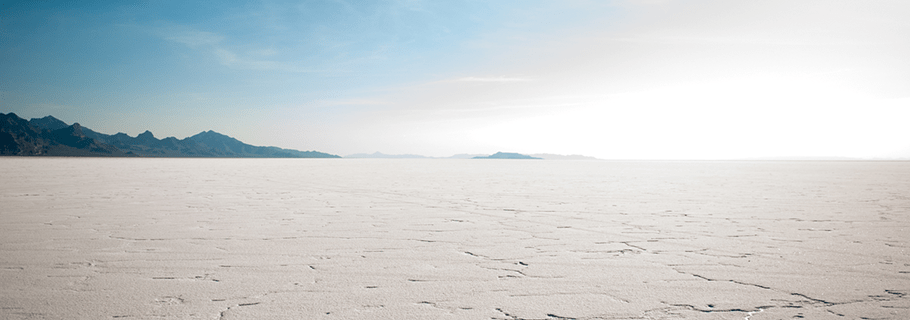Is there any sin we commit more but admit less than the sin of idolatry? As people who have knowingly and willingly deserted the one true God, we turn our hearts this way and that to find the satisfaction we are meant to find in him alone. We try first one thing and then the other yet never find our thirst assuaged. It is not until we rest in him that we find true rest. It is not until we are satisfied in him that we find true satisfaction. Idolatry is the curse of all mankind.
Idolatry is the subject of a new book by Steve Hoppe. All throughout the book, he uses saltwater as a metaphor for our idolatry. A shipwrecked sailor can float in an ocean filled with trillions of gallons of water but never quench his thirst because he is afloat in saltwater. In the same way, none of the pleasures in this world can ultimately satisfy us without God. Hoppe says, “In our nagging state of thirst for paradise lost, what do we drink? Saltwater. We consume things that look and feel and sound like they can quench our thirst. They promise unmatched pleasure. They promote limitless comfort, joy, strength, peace, and excitement. They vow to remove our fears, tears, worries, guilt, and shame. They pledge to fill the voids in our hearts and soothe our aching souls. They promise paradise. But they can’t deliver. We drink them, but our thirst remains unquenched. In fact, we are left thirstier. And we experience devastating hangovers — negative spiritual, emotional, physical, and relational consequences — as a result.”
What is this saltwater? “This saltwater doesn’t come from the ocean. It comes in a variety of forms from the world around us and our hearts within. It comes in the form of money, sex, control, or comfort. It comes in the form of busyness, people, food, or works. It can come in the form of anything. … Even though we are thirsty for paradise lost, we drink saltwater instead — in a million different forms.”
The trick, of course, is that none of these things are evil in and of themselves. Just like saltwater is good for the purpose for which it was created, so, too, is each of these. Each of them is a good gift of God. Each of them is meant to be enjoyed. The problems begin when they are elevated too far. They become idols when they become ultimate matters. Hoppe describes what he calls the “saltwater cycle” which consists of three steps that repeat themselves endlessly. First, we listen to a lie; second, we take a drink; third, we suffer. We listen to the lies of the world, the flesh, and the devil and believe that we can be satisfied with what they offer. Then we take a drink, we believe the lie, we look for satisfaction, we make gifts into gods. Then, inevitably, we suffer the consequences. We feel guilt and shame and sorrow and promise never to do it again. The cycle repeats.
The hope, of course, is the gospel of Jesus Christ. It is his joy to deliver us from this endless cycle of discontentment so we can be contented in him. He lets us see that he himself is the living water that quenches our deepest thirst.
Yet as long as we live in this simple world, we will continue to struggle with idolatry. For that reason, most of the book is a look at the various idols we encounter in life, and how to overcome them. He looks at money, sex, control, comfort, busyness, people, food, and good works. Each of these is a wonderful gift of God, yet every one of them can be so terribly misused even in the hands of those who love God.
If you are unfamiliar with the category of heart idolatries, you will not do much better than Sipping Saltwater as an introduction. And even if it is a familiar category, this book may serve as a valuable refresher. I highly recommend it.










